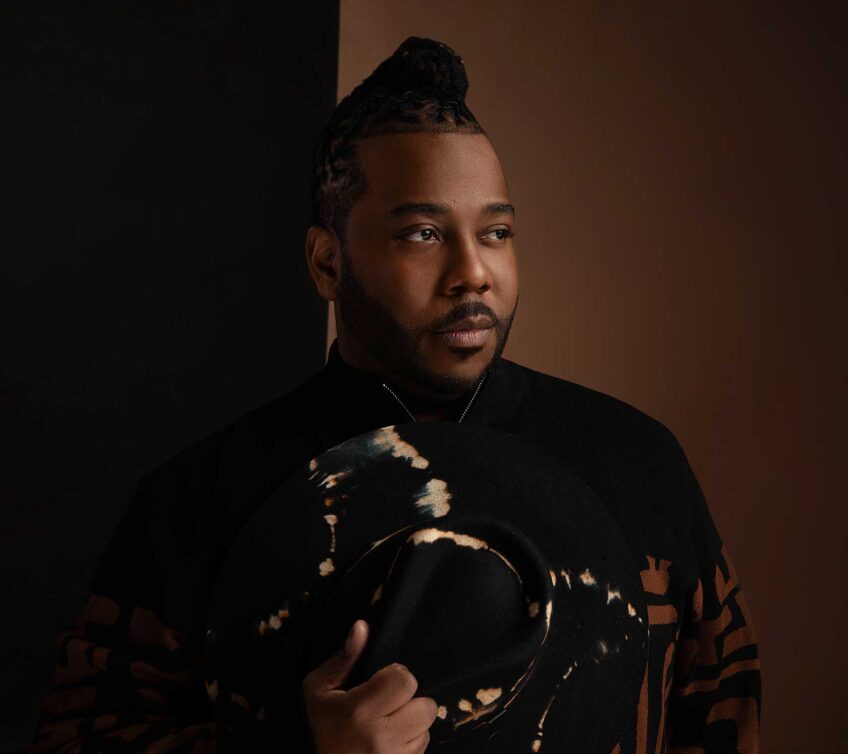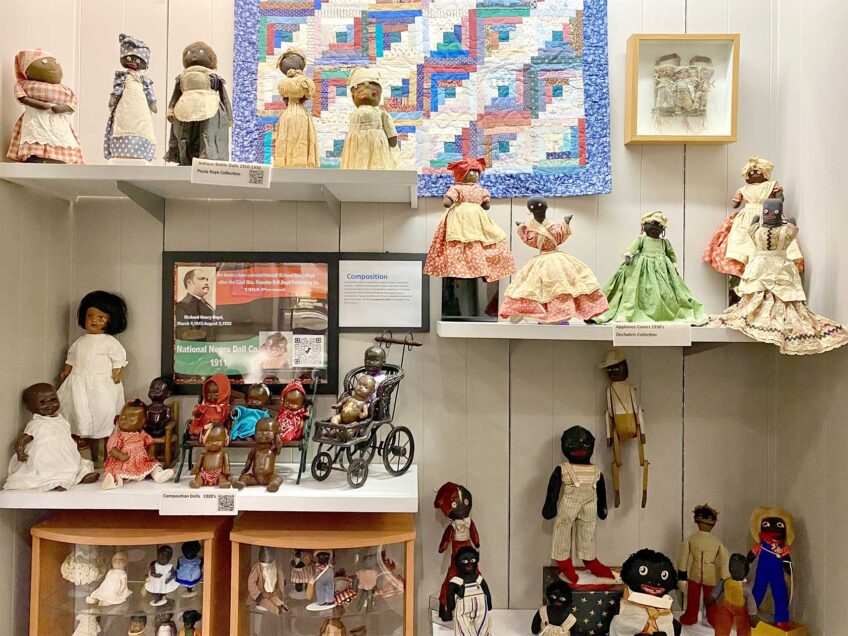A conversation with “Beasts of the Southern Wild” director Benh Zeitlin


Quvenzhané Wallis as Hushpuppy in “Beasts of the Southern Wild.”

Quvenzhané Wallis as Hushpuppy in “Beasts of the Southern Wild.”
“Beasts of the Southern Wild” is an incredible whirlwind of a movie about loss, hope and resilience all reflected in a 6-year-old force of nature named Hushpuppy (Quvenzhané Wallis), who lives with her tough but loving father Wink (Dwight Henry) in an isolated bayou community in Louisiana. When Wink succumbs to a mysterious illness, the fierce and determined girl is forced to search for help for her ailing father outside the comfort and familiarity of the “Bathtub.” But Hushpuppy’s search is hindered by a hurricane threatening all who live in the remote isle of the “Bathtub.”
The film gained huge buzz and the 30-year-old director Benh Zeitlin has been nominated for several Oscars including “Best Picture,” “Best Director” and “Best Writing for Adapted Screenplay.” He has already won The Grand Jury Prize, the Excellence in Cinematography Award at the Sundance Film Festival and the Camera d’Or award at the Cannes Film Festival.
Here is what he had to say on casting newcomers Dwight Henry and Quvenzhané Wallis (who was also nominated this year for Best Actress in a Leading Role), and his love of Louisiana.
What was it about Dwight [Henry] that made you believe he was the one for this part?
He was the only non-professional actor we ever considered for the role. I didn’t think it could be done by a non-professional. The key with him was that character is so violent sometimes and is so difficult to like. He goes so far in the way that he treats her that all the actors we tried out for the role just became monstrous and it was hard to relate to them. And Dwight is such a good guy. He’s such a warmhearted person and a good man. You sort of sense that in him. I felt that even when he would go to the furthest extremes of brutality with her you would always kind of feel that there was some sort of foundation of affection. That somehow his harshness came from a place of trying to train her, of teaching her to survive. He managed to hold us even in his harshest moments and that’s definitely hard to pull off. It comes from who he is.
Did you need to have an acting coach work with him?
In a way he kind of strengthened that part of the character. The character is really a collaboration between the two of us. We had something written and he brought himself to the role. There were scenes that I had written where I would say “Wink is not thinking about Hushpuppy right now….” and Dwight would read those scenes and would say “I would be thinking more about my daughter’s welfare.” We actually wrote that more into the part based on his experience. It’s something that is in him and I don’t think he can act his way out of it. That’s part of the advantage of working with someone that isn’t a trained actor. You’ll completely transform. They keep some essence of themselves. And we tried to cast someone whose essence related to the character.
Are script revisions normally something you allow for?
It’s definitely part of the plan. It’s probably my favorite part of making films. It is a process of you getting to know people and getting to learn about people and experience things that are far from my life and my upbringing. That process of getting to know not only him but the other actors in the community where we shot was part of the plan. It was always part of the plan that they’re going to inform what ends up on screen as much as my imagination.
There were two lines in the movie that struck me. The first is “Everything is a buffet of the universe”; and the other line, by Hushpuppy, is “The whole universe depends on everything fittin’ together just right.” The universe is a central part of the story. Did these lines mean something to you?
There’s a real humility to living on the edge of the world. It’s not like living in a city. You forget you’re part of nature. You forget you’re not just a person but an animal on a planet. When you’re down there, you sense that so viscerally. The water can come and take this place away. The water is something connected to icecaps in the South Pole. Your actual place is in the balance of a global environment … What’s after you is so much larger than yourself and all you can do is learn how to survive. Hushpuppy internalizes that and is thinking about that interconnectedness. When something happens, she’s trying to piece it together with what she knows not just of her little world but with the giant span of human history and the planet itself.
When you first saw Quvenzhané, did you think she was right for the role?
When she started to do the scene that we had done 4,000 times and completely did it differently than anyone else ever had. She brought this intensity to it that no one had ever brought to it. We never thought that we’d get someone that young to play these scenes so directly. We always thought somehow we would have to set a kid loose in this world and sort of document it. She actually had the ability to control her performance. She’s a real actress.
Were you looking for specific ethnicities for the roles?
Hushpuppy’s role was cast race-blind. We had kids of all different kinds and the same is true for all the characters. We always wanted the Bathtub to be a diverse place. We didn’t want it to be homogenous in any way. That was always part of the idea. We were never able to cast the father until we cast her. And, we wanted her to look like the father and she was cast first and we built out from there.
Were the people in Pontchartrain receptive and open to being on camera?
It’s not a realistic film. The Bathtub is definitely a fabricated culture and a fabricated place. We had unbelievable hospitality down there. People really welcomed us. It wasn’t like we just showed up with cameras. It was a real collaboration with the town. We had tons of locals working with the film and on the film. It felt like a big family project. It’s not a piece of realism. It’s not a documentary. It’s not about the town specifically. Everyone understood it was an adventure movie that was related to the town and not about the town specifically.
Were you surprised when you won at Sundance and Cannes? What was the feeling like?
It’s so surreal. We never imagined this would happen. We weren’t savvy about distribution companies. We finished the film two days before Sundance and I still wasn’t separated enough from the actual making of the film to have distance from it, and during Sundance it dawned on me that this film was really working.
What is about Louisiana that makes you want to tell stories about there?
I just love filming there. There’s just another culture down there. It kind of fits with how we live. We thrive down there.
“Beasts of the Southern Wild” returned to theaters on Jan. 18 and is currently playing at Landmark’s Kendall Square and Embassy in Waltham.
Coming Up…
The Boston Wine Expo returns the weekend of Feb.16-17 at the Seaport World Trade Center benefitting the Tufts Medical Center and other local charities. For more information visit www.WineExpoBoston.com.
On Feb. 19, the Paradise Rock Club presents Solange for one show at 8 p.m.
Talib Kweli comes to The Middle East Downstairs in Cambridge on Tuesday, Feb. 26.
If you would like me to cover or write about your event, email me at inthemixwithcolette@gmail.com.


![Banner [Virtual] Art Gallery](https://baystatebanner.com/wp-content/uploads/2024/04/Cagen-Luse_Men-at-store-e1713991226112-150x150.jpg)

![Banner [Virtual] Art Gallery](https://baystatebanner.com/wp-content/uploads/2024/04/Cagen-Luse_Men-at-store-e1713991226112-848x569.jpg)

